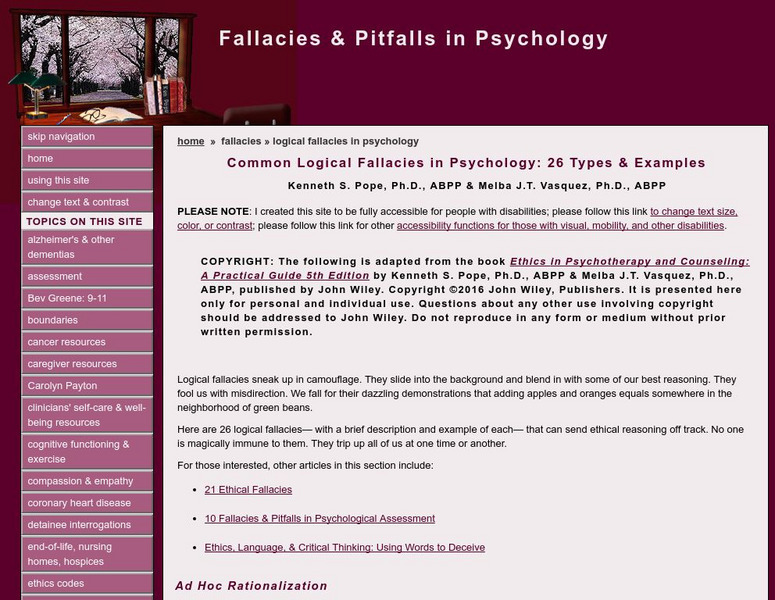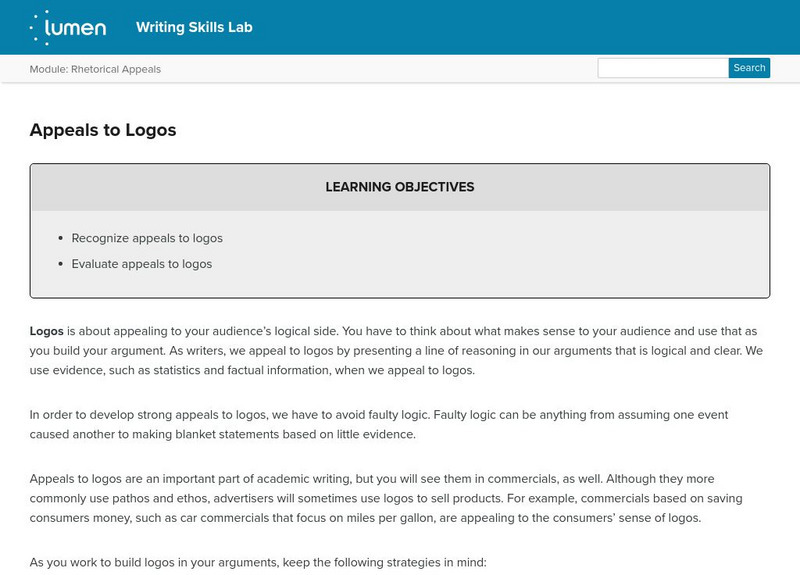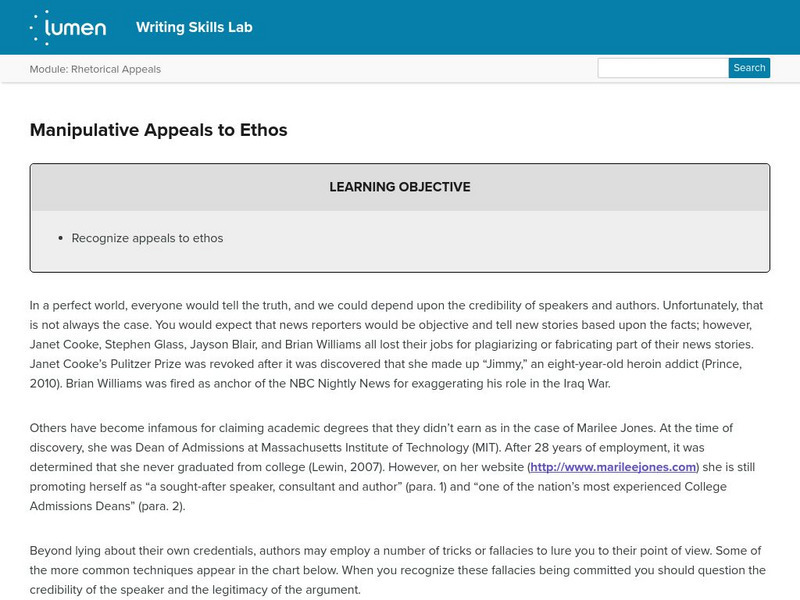Hi, what do you want to do?
Curated OER
Anne Frank: Propaganda
Students discover techniques that are used to spread propaganda. They define what propaganda is and how it can be used in both a positive and negative manner. They produce an ad campaign for product.
Curated OER
To Whom It May Concern
Fourth graders produce and peer edit typed rough drafts of the business letters following the guidelines illustrated in the Eight Essential Parts of a business letter and save to disks. They complete the Where's the Math? scavenger hunt...
Curated OER
What Interests You?
Fourth graders investigate math in the real world using internet search methods to locate career fields of interest. They select an occupation, and draft brief paragraphs that reflect insight as to why that occupation interests them.
Curated OER
Survival Story
Students discuss the pros and cons of being deserted on an uninhabited island. Then they write their own survival stories and complete a story jacket.
Curated OER
Poetry Book
Students study the following terms and concepts: word choice, dialect, invented words, concrete terms, abstract terms, figurative and sensory language. In cooperative groups, they select three of the terms, research them, and pick poems...
Curated OER
Children's Media and Censorship
Students examine the point of censorship when dealing with Students. They explore essays by Stephen King.
Curated OER
Reflections About Diversity
Students discuss conflicts that arise from problems with diversity issues, and hypothesize what is needed to bring about successful resolutions to these problems. They write a newspaper editorial about how conflicts can be successfully...
Curated OER
Package Design
Twelfth graders utilize the computer and various software programs in order to design a 3 dimensional package which they submit a cost estimate sheet of production in their oral presentation.
Curated OER
Irish Eyes: Taking a Look at Local Landscape
Students create landscape flyers of local landscapes using digital photography, educational software, and examples of Irish landscapes. This creative-project lesson lasts two weeks, including class time spent collecting photographs...
Curated OER
My Wilderness Adventure
Students use a story starter and given questions to continue their adventure. They use the Internet and books to research about winter survival skills, how to find food, water and shelter in the snowy mountains and discover information...
Curated OER
The Odyssey Plan
Ninth graders read and analyze The Odyssey. They apply note-taking skills to identify enemy, type of enemy, and traits demonstrated throughout the book. Students create a storyboard that illustrates the selected episode from the book...
Curated OER
Final Project Presentations: Water Quality
Students synthesize the information they have been researching on water quality to evaluate the potential health risks in a region with arsenic contamination. They prepare and present a persuasive speech that incorporates visuals.
Curated OER
Polythene: Bags Of Trouble
Learners investigate the use of polythene bags in the community and measure the possible impact upon the environment. They conduct research using a variety of resources. The information is used in order to create an evaluative opintion...
Curated OER
What Does Advertising Say About Smoking?
Students examine tobacco advertisements. In this smoking advertisements lesson, students read old magazine or newspaper ads to determine their purpose and influence. Students also discuss how to make responsible health...
Pennsylvania Department of Education
Giving Things a Name
Students label images seen on an interactive website. In this early writing lesson, students do their best to write the name of the object seen on the screen.
Lumen Learning
Lumen: Boundless Communications: Logical Appeals
This lesson focuses on using logical appeals in persuasive speeches including inductive and deductive reasoning, inductive reasoning and associative reasoning, forming a rational appeal, and errors in reasoning-formal and informal.
Other
Fallacies & Pitfalls in Psychology
This page lists and explains 18 of the most commonly used logical fallacies. "The name of each fallacy is followed by a brief description and an example from the field of psychology."
Lumen Learning
Lumen: Rhetorical Appeals: Kairos and Logos
This lesson focuses on the 4th logical appeal called Kairos, a time when conditions are right for the accomplishment of a crucial action; the opportune and decisive moment.
ReadWriteThink
Read Write Think: Identifying and Understanding the Fallacies Used in Advertising
Contains plans for four lessons that teach about the fallacies used in advertising such as bandwagon appeal, hasty generalizations, red herrings, emotional appeals, and more. In addition to objectives and standards, this instructional...
Lumen Learning
Lumen: Rhetorical Appeals: Appeals to Logos
This lesson focuses on appeals to logos, or appealing to your audience's logical side including your types of source material, remembering your audience, and being sure to maintain clear lines of reasoning throughout.
University of North Carolina
University of North Carolina: The Writing Center: Fallacies
Discussion of common fallacies, along with definitions, examples, and tips on avoiding them.
Lumen Learning
Lumen: Rhetorical Appeals: Manipulative Appeals to Logos
This lesson plan focuses on how to determine if an appeal to logos is manipulative. It also provides a practice activity.
Lumen Learning
Lumen: Rhetorical Appeals: Manipulative Appeals to Ethos
This lesson focuses on the ways appeals to ethos can be manipulative including lying about their credentials and employing a number of tricks or fallacies to lure you to their point of view.
Other
Cal State Fullerton: Common Fallacies in Reasoning
This page from California State University at Fullerton list twenty-three common fallacies in reasoning. Each includes an explanation and two examples. The list includes the following: faulty cause, sweeping generalization, hasty...




























